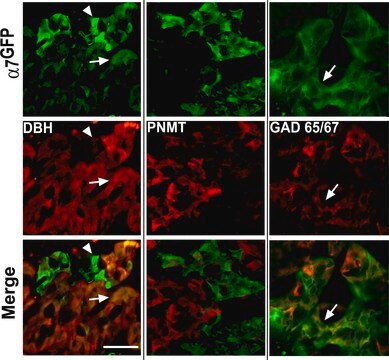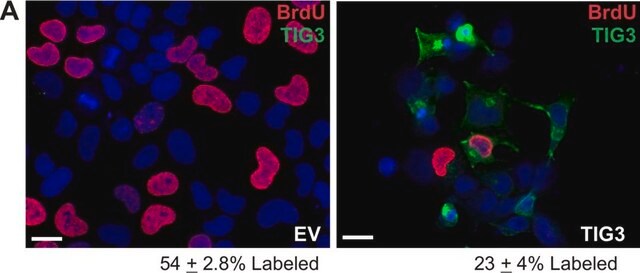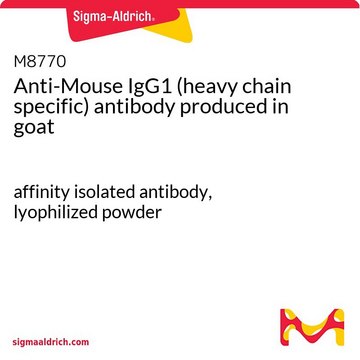B6804
Monoclonal Anti-Bacterial Alkaline Phosphatase (BAP, PhoA) antibody produced in mouse
clone BAP-77, ascites fluid
Synonyme(s) :
Monoclonal Anti-Phosphatase, Alkaline, bacterial
About This Item
Produits recommandés
Source biologique
mouse
Niveau de qualité
Conjugué
alkaline phosphatase conjugate
Forme d'anticorps
ascites fluid
Type de produit anticorps
primary antibodies
Clone
BAP-77, monoclonal
Poids mol.
antigen ~50 kDa
Espèces réactives
bacteria
Technique(s)
indirect ELISA: suitable
western blot: 1:20,000 using purified Escherichia coli BAP
Isotype
IgG1
Conditions d'expédition
dry ice
Température de stockage
−20°C
Modification post-traductionnelle de la cible
unmodified
Description générale
Immunogène
Application
Actions biochimiques/physiologiques
Clause de non-responsabilité
Vous ne trouvez pas le bon produit ?
Essayez notre Outil de sélection de produits.
Code de la classe de stockage
12 - Non Combustible Liquids
Classe de danger pour l'eau (WGK)
WGK 1
Point d'éclair (°F)
Not applicable
Point d'éclair (°C)
Not applicable
Faites votre choix parmi les versions les plus récentes :
Certificats d'analyse (COA)
Vous ne trouvez pas la bonne version ?
Si vous avez besoin d'une version particulière, vous pouvez rechercher un certificat spécifique par le numéro de lot.
Déjà en possession de ce produit ?
Retrouvez la documentation relative aux produits que vous avez récemment achetés dans la Bibliothèque de documents.
Notre équipe de scientifiques dispose d'une expérience dans tous les secteurs de la recherche, notamment en sciences de la vie, science des matériaux, synthèse chimique, chromatographie, analyse et dans de nombreux autres domaines..
Contacter notre Service technique







